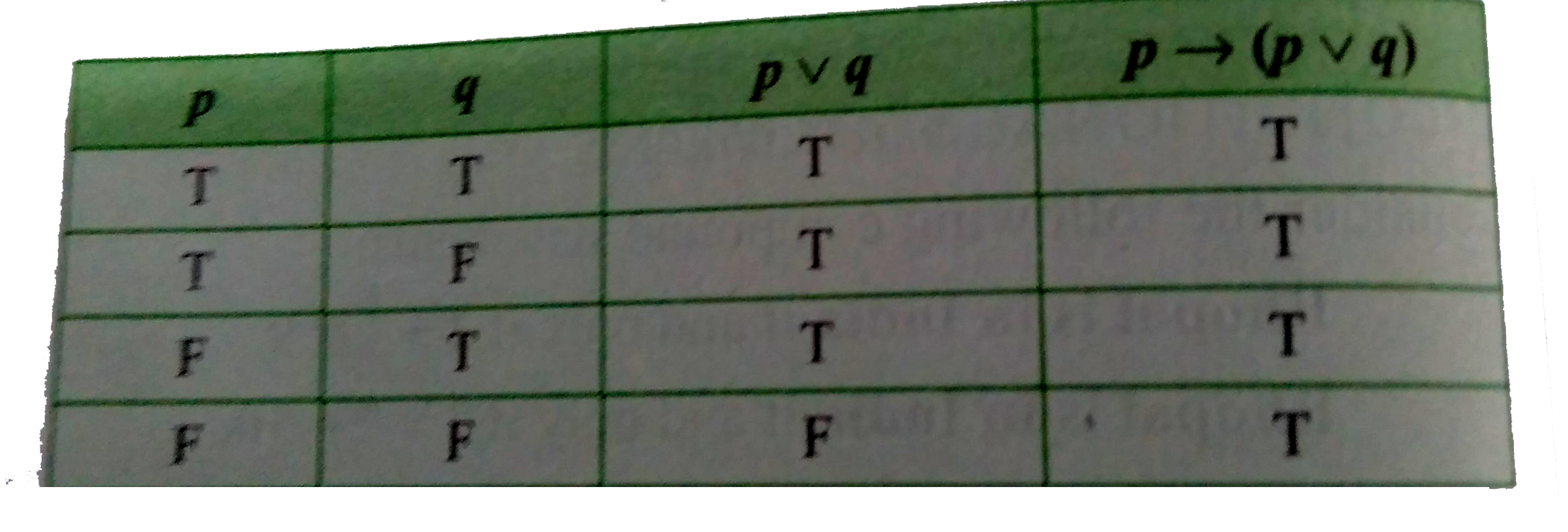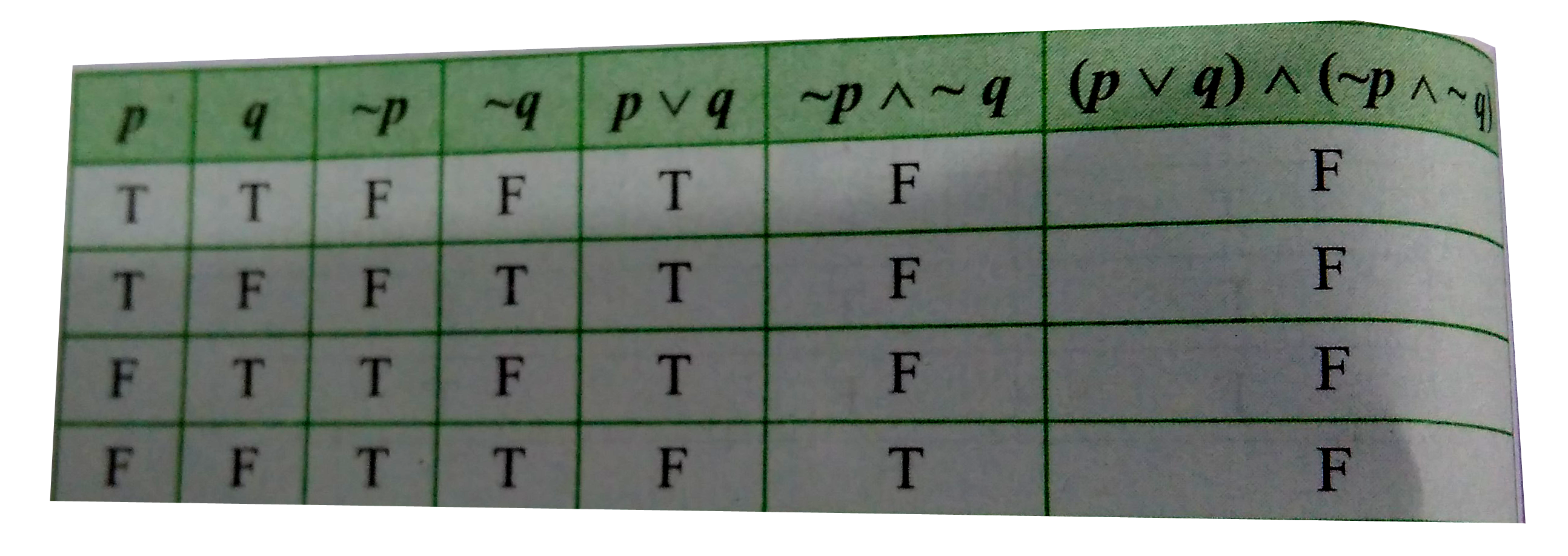Show that
(i) p→(p∨q) is a tautology
(ii)(p∨q)∧(~p∧~q) is a contradiction
Video Solution
Text Solution
(i) Truth values of p→(p∨q)

Thus, for all possible truth values of p and q, the compound statement p→(p∨q) is true
Hence, p→(p∨q) is a tautology
(ii) Truth values of (p∨q)∧(p∧~q)

Thus, for all possible truth values of of p and q, then compound statements (p∨q)∧(~p∧~q) is false.
Hence, (p∨q)∧(~q∧~q) is a contradiction .
|
Updated on:21/07/2023
Topper's Solved these Questions
- BOOK - CENGAGECHAPTER - MATHMETICAL REASONINGEXERCISE - Exercise 10.18videos
MATHMETICAL REASONING
- BOOK - CENGAGECHAPTER - MATHMETICAL REASONINGEXERCISE - Exercise 10.25videos
MATHMETICAL REASONING
- BOOK - CENGAGECHAPTER - LOGARITHM AND ITS PROPERTIESEXERCISE - JEE Previous Year5videos
LOGARITHM AND ITS PROPERTIES
- BOOK - CENGAGECHAPTER - MATRICESEXERCISE - Solved Examples And Exercises165videos
MATRICES
Similar Questions
Knowledge Check
- Question 1 - Select One
(p∧~q)∧(~p∨q) is
Aa contradictionBa tautologyCeither (1) or (2)Dneither (1) nor (2)
Show that (p∧q)∨(~p)∨(p∧~q) is a tautology
View Solutionprove that (p∧q)∧~(p∨q) is a contradiction.
View SolutionShow that (p∨q)∧(~p∧~q) is a contradion .
View Solution((p∨q)∧~p)→q
View SolutionShow that [(p∨q)∨r]↔[p∨(q∨r)] is a tautology
View SolutionWhich of the following is false? (p⇒q)⇔(~a⇒~p) b. p∨(~p) is a tautology c. ~(~p)⇔(~q⇒~p) is a tautology d. p∧(~p) is a contradiction
View SolutionShow that [(p→q)∧(q→r)]→(p→r)is a tautology
View Solution

